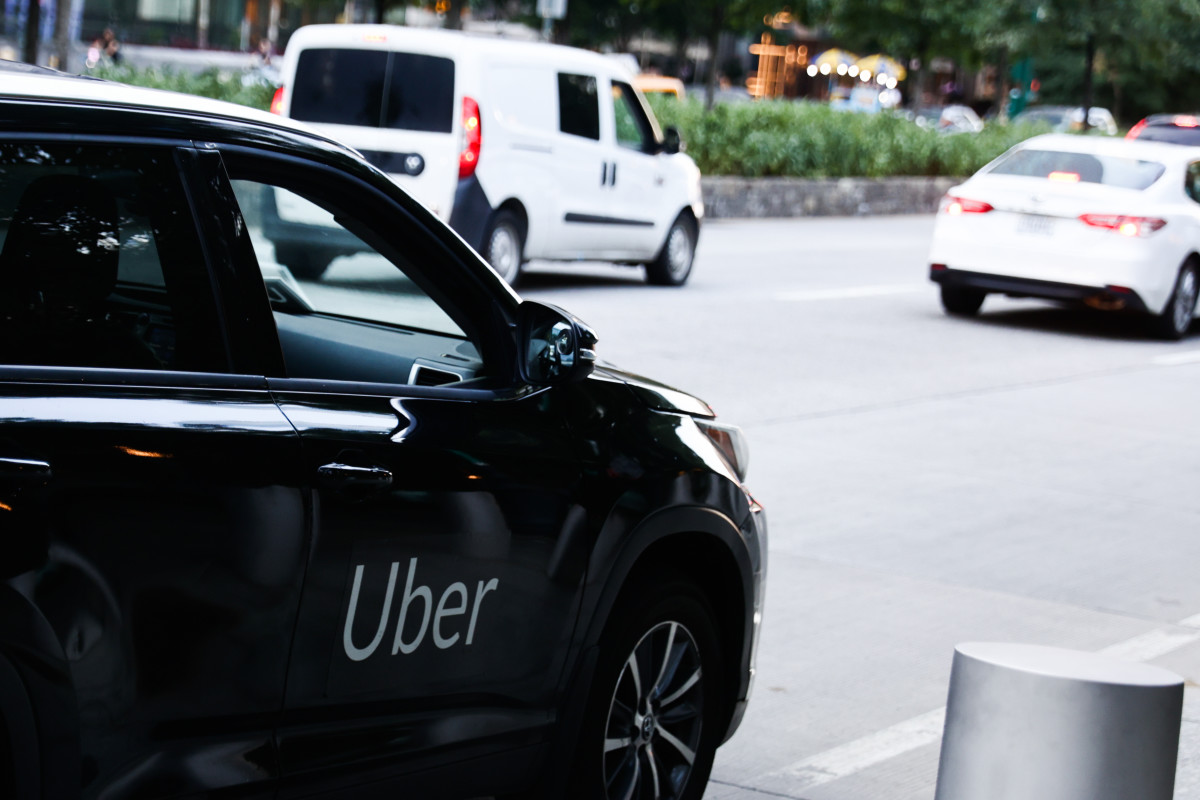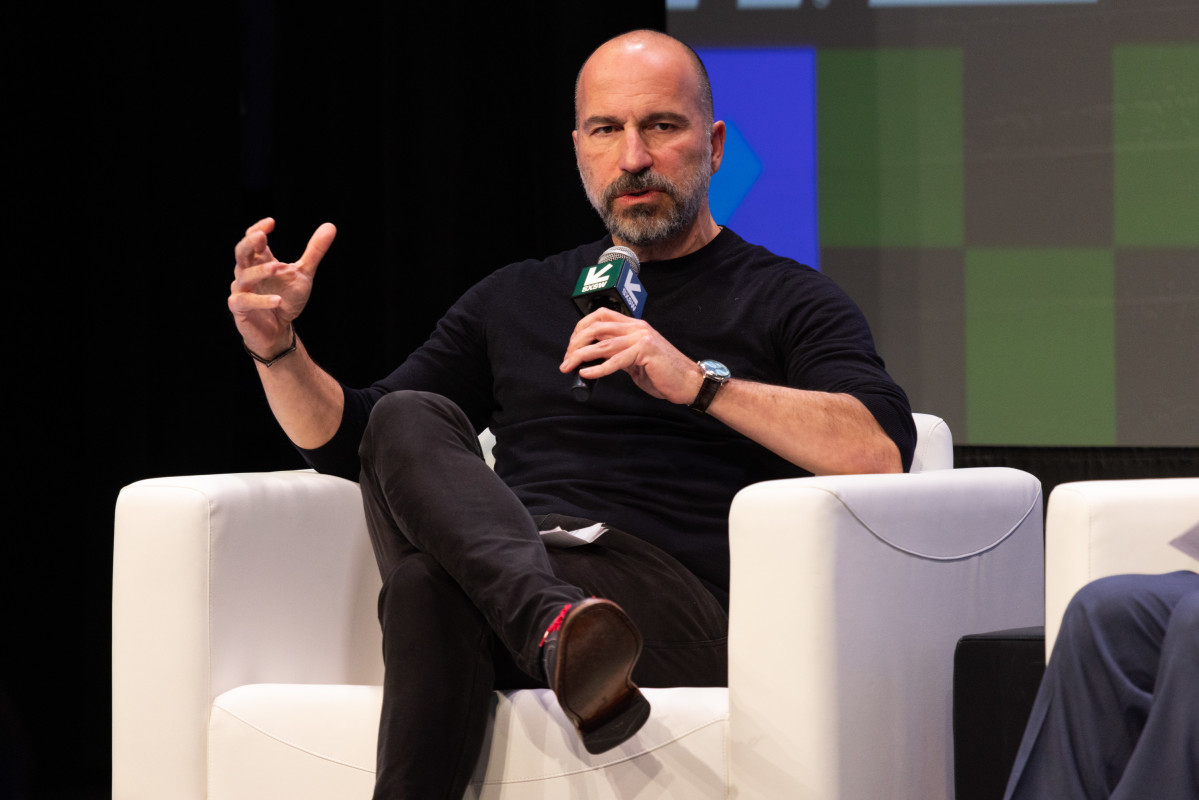
Need a ride to the airport? Maybe Waymo can help you out.
Alphabet's (GOOGL) autonomous vehicle company reportedly wants permits to allow its robotaxis to take passengers to and from San Francisco International Airport, according to TechCrunch, which cited emails obtained through a Freedom of Information Act request.
Related: Analysts reboot Tesla stock price targets after robotaxi delay
Waymo, which did not immediately respond to a request for comment, currently has permits to operate its robotaxi service 24 hours a day in the city of San Francisco, parts of the Peninsula and highways that reach the airport, TechCrunch said.
Meanwhile, on the other side of the country, the Port Authority of New York and New Jersey announced an autonomous vehicle pilot program at JFK International Airport where shuttle buses from the New Zealand-based company Ohmio will be used to help travelers get around the parking area.
So, what does the future hold for autonomous vehicles?
McKinsey said in a report released in January that 2023 “was a tipping point for the autonomous-vehicle industry.”
“Although leading players were able to successfully run and scale first commercial operations and increase their funding, others saw significant setbacks, stopped or reduced their operations, or exited the market entirely,” the firm said.
McKinsey said that its global executive survey on autonomous driving reveals that despite recent uncertainties, “the autonomous-vehicle industry is beginning to take shape.”
Survey says consumers wary of autonomous vehicles
"Early robotaxi services are already available in select markets, but the path to at-scale commercialization remains challenging because of the need for technological advances, regulatory support, and available capital," the report said.
It has been a rough ride for some autonomous vehicle companies.
Related: Analyst revisits Tesla stock price target ahead of Q2 earnings
In June, Cruise, General Motors’ (GM) self-driving-car company, said that it had resumed manual driving in Phoenix, Houston and Dallas.
California had revoked the company’s permit to operate driverless vehicles in October after one of its robotaxis struck a pedestrian and dragged her 20 feet.
Tesla (TSLA) CEO Elon Musk has been a big booster of autonomous vehicles for quite a while.
Musk announced earlier this year that the electric vehicle maker would unveil its robotaxi on Aug. 8, but then signaled that the company would take more time to incorporate a design change after Bloomberg reported that the launch was delayed until October.
The reason for the delay, Bloomberg said, was that teams working on the project "needed more time to build additional prototypes." The report suggested the team had been told to "rework certain elements of the car."
But how do consumers feel about autonomous vehicles?
A study commissioned by Forbes Advisor in February found that 93% of Americans have concerns about some aspect of self-driving cars, with safety and technology malfunctions topping the list.
Fifty-one percent of consumers are somewhat or very unlikely to own or use a self-driving vehicle in the next five years, Forbes said. And 61% of Americans said they wouldn’t trust a self-driving car with their loved ones or children.
Autonomous vehicles are likely to affect ride-hailing companies like Uber Technologies (UBER) and Lyft (LYFT) .

However, Uber CEO Dara Khosrowshahi didn't seem too worried about the autonomous vehicle issue during the company’s first-quarter earnings call in May.
Uber, which is scheduled to report second-quarter results on Aug. 6, beat expectations for revenue but fell short of estimates for gross bookings.
“We think that the AV technology at maturity is going to be very good for the industry," Khosrowshahi said. "It will be great for Uber. It holds a promise of safer rides. It holds a promise of expanding the marketplace by lowering prices and making mobility delivery available for a wider swath of the population."
Analyst notes 'elephant in the room'
"And usually, when we see kind of lower prices for any service," he added. "You see higher adoption for a service, and that really is the promise of AV. At the same time, we think that the technology is going to take a lot of time to develop."
Khosrowshahi said that Uber has the pricing, matching, routing algorithms, payments systems, as well as the demand that enables the company to partner with AV providers.
More automotive stories:
- Police officer pulls over Waymo robotaxi, meets no driver or passengers
- Fisker's fire sale deal comes with a giant asterisk
- Ford CEO sends a stern warning for American car buyers
"If you're an AV fleet owner or you are an individual owner of a car, whether that's a Tesla or another kind of car, you're just going to make more money and make a higher kind of return on your investment if you plug in your AVs into the Uber ecosystem into Uber demand," he said.
Khosrowshahi said that "we think we bring lots to the table.”
“We're looking to partner with the AV industry," he said. "I do think that there's a good amount of excitement over some of the newer technologies and kind of the imitation models that we see in terms of AV. And you see that promise with Tesla with (Full Self-Driving)."
Analysts at Melius Research had some concerns about AVs and the ride-hailing industry. On July 22, the firm initiated coverage of both Uber and Lyft with hold ratings and price targets of $77 and $15, respectively.
The new debate for rideshare "turns to the elephant in the room" - the impact of autonomous vehicles on the ecosystem, the firm said in a research note.
Melius said that while growth accelerating from autonomous vehicles "is certainly possible," with Tesla now seemingly set on entering the market with its own robotaxis, "a new overhang has arrived."
The prospect of a new entrant into the market "brings a cloud of uncertainty to an industry just starting to click, illustrating the uncertainty around autonomy," the firm said.
Uber and Lyft have a secular growth story to tell, but the "problem is everyone agrees," Melius said.
Last week, Wolfe Research initiated coverage of Uber with an outperform rating and $90 price target as part of a broader sector note launching coverage of global internet names.
Uber maintains a solid competitive moat and delivers healthy fundamental trends while benefiting from stable demand trends for its core products and unlocking growth opportunities with new categories, products, verticals, and geographic markets, the firm said.
Wolfe also gave the stock a Top Pick designations thanks to Uber's sustainable, high-teens topline growth, meaningful margin expansion, and healthy free cash flows.
Uber shares closed Monday, July 22, at $67.73. The stock is up 10% this year.
Related: Veteran fund manager sees world of pain coming for stocks







